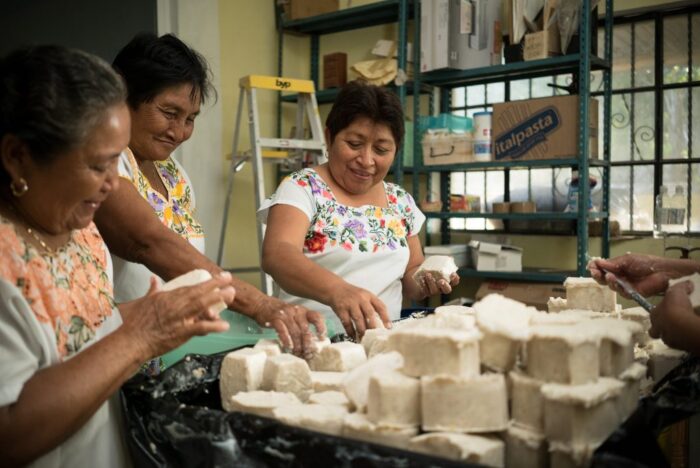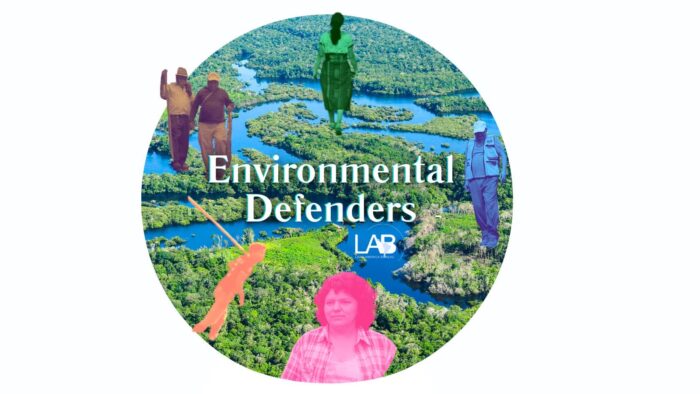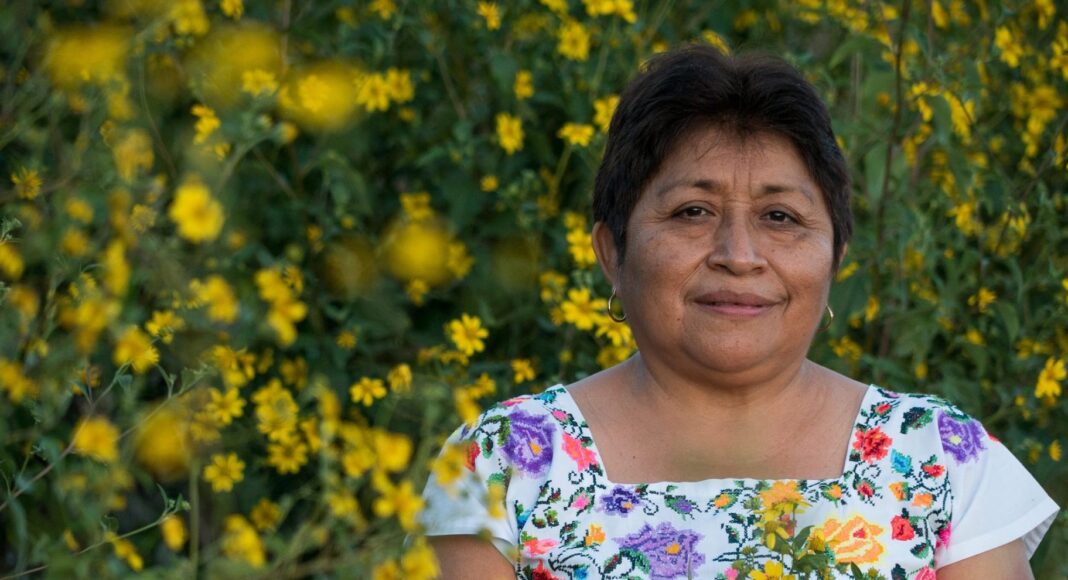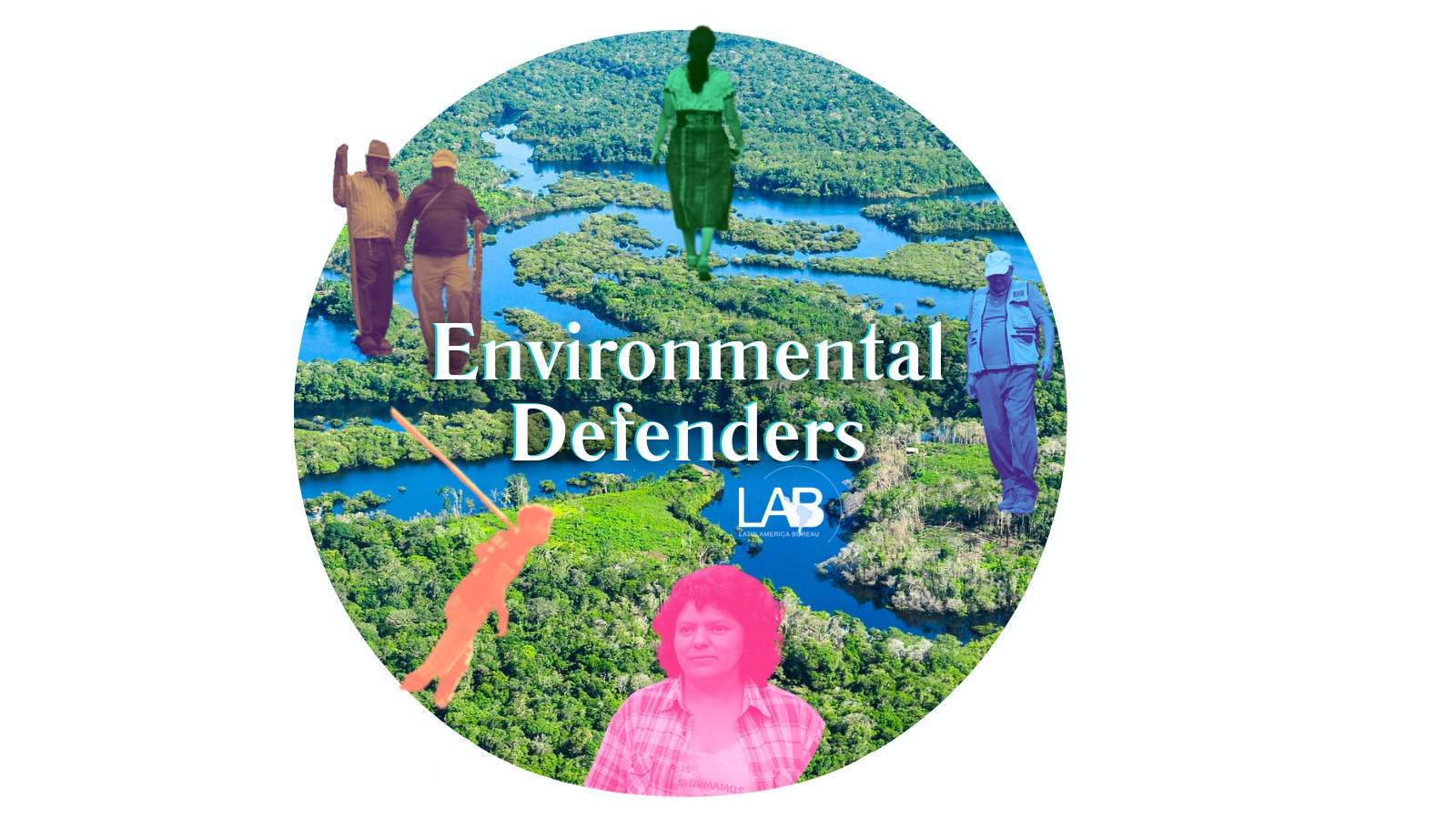Ledy Pech Martín is a Mexican Indigenous beekeeper who led the fight against the multinational giant, Monsanto, and won. She is an environmental defender who has worked tirelessly to raise awareness over pesticide use and its effects on the natural habitat of bees, as well as the honey supply that is crucial to the livelihoods of indigenous Mayans in the Yucatán peninsula.
The bees signify a lot in my life. They are part of my story. They are part of my diet, part of my health, part of my livelihood…They are doing a very important job for us and for humanity. This is not seen – they pollinate our food, they pollinate the trees that we need for oxygen to breathe.
(El País)
It’s life!
The Honey Lady
For Leydy Pech and her community, honey is much more than food: it’s about identity. Pech is from the Ich Ek community in Hopelchén, Southern Mexico. Around twenty years ago, together with other Mayan women from her community, she restarted an ancient practice of cultivating the Xunáan Kab bee to produce honey, a practice known as meliponiculture.
The bee was named by scientists as the Melipona beecheii, but is known by the Mayans as Xunáan Kab, ‘the honey lady’; it has no sting and is an important pollinator for the rainforest. However, due to deforestation and the introduction of the European honey bee, it has become an endangered species, relying on specific native plants for its survival.
Beekeeping: an ancient Mayan practice
Beekeeping is a 3,000 year old practice for the Mayan people and integral to their culture. There is evidence of honey being used to produce alcoholic drinks for ritual activity, as well as the worshiping of bee Gods; the Xunáan Kab bees were even depicted as Gods during the Classic Mayan period.
Today, Mexico is one of the highest producers and exporters of honey in the world, with 40 per cent of the country’s honey produced in the Yucatán Peninsula. In Campeche, it gives a livelihood to 25,000 families in the Indigenous communities.
The honey isn’t just used as a delicious food and a source of income. Since pre-Columbian times, its medicinal qualities have been used to treat ailments, from stomach infections and skin wounds to cataracts. Today, the Mayan people continue to use this valuable nectar for their health.
Pech and her organisation use beekeeping to help to strengthen their sense of community, teaching traditional bee husbandry and creating a symbiotic relationship with the bees.

Defending against multinational corporation Monsanto
Being a defender of my territory has come with risks: for my life, for my security…there are many interests that you come against when you’re defending.
(El Pais)
Despite the progress made in re-introducing traditional methods to protect the bees, in 2000 the chemical agriculture giant, Monsanto, started to cultivate genetically modified soybeans in Mexico. These soybeans are known as “Roundup Ready”, meaning the plant has been modified to tolerate high doses of the glyphosate-containing Roundup, a likely carcinogen and, as it transpired, deadly to bees. In 2012, the Mexican government gave Monsanto permission to plant this GM soybean in a number of states, including Campeche, where Pech’s community is located. Large areas of forest were cleared in order to make space for 600,000 acres of the new crop.
Pech saw the bees were dying from the aerial fumigations and the devastation the deforestation was having on the local habitat.
She put together a group of NGOs, beekeepers and environmentalists to file a lawsuit against the Mexican government, to stop the GM soybeans being planted. It was clear the permits had been granted to Monsanto illegally – without consulting the Indigenous communities they would affect, as stated in the law.
Everything is at risk. Our customs, our ways of life, our health, everything we have”
(COUS UNAM interview)
Pech launched a campaign against Monsanto and the government, raising awareness amid threats and confrontations against her and her community. When she saw people were becoming ill, she partnered with researchers who found the glyphosate was negatively affecting the bees.
In 2015, in a landmark ruling, the Mexican Supreme Court ruled in favour of the Indigenous community, stating that Monsanto must consult them before planting the soybeans. This later led to the Mexican Food and Agricultural Services revoking Monsanto’s GMO soy permit altogether in seven states. It marked the first time the government had taken official action to protect the environment and Indigenous communities against GM planting and has been a huge example for other communities in similar fights.
Exemplifying the discrimination faced by Pech, a lawyer for Monsanto remarked he couldn’t believe they had been defeated by ‘such a small woman’.
‘Development’ for whose benefit?
Pech’s unending fight to protect the future of her community resulted in her winning one of six Goldman Environmental prizes in 2020.
‘The prize gives me the opportunity to say to the world that the territories of Indigenous peoples are being stripped away by the imposition of megaprojects, of extractivism, agroindustry, tourism, and others that strengthen a capitalist model, which affects the natural resources and our ways of life,’ Pech stated at the ceremony.
She argues that when speaking about ‘development’, we should consider who might benefit from it being carried out in a certain way. Pech envisions an alternative model that includes the communities affected:
Development is not just based in economic growth. Rather, for us, for the Indigenous people, development is a space where all our knowledge is integrated, our ways of life, our culture, our language, where there is this spirituality through which we relate to the environment, where there is everything we need to live – like water, our medicinal plants, our seeds and leaves.
(COUS UNAM interview)
The fight for human rights continues
Although her victory against Monsanto was momental, Pech must keep fighting. Despite the ruling, fumigations and illegal soya sewing have continued with impunity and consultation with the Indigenous communities has come to a standstill. They continue to dispute with the Mennonite community, who have expanded their use of large-scale agriculture and genetically modified soy; livelihoods are at stake, for both communities. Pech emphasises that their fight does not only concern their community, it affects everyone, as due to globalisation, the consumers of food produced using GM crops and pesticides can be anywhere in the world and will feel its effects on their health. In her words, ‘caring for and defending our territory is everybody’s responsibility…We must start to look at territorial defenders as defenders of life’.
Main image: Goldman Environmental Prize

LAB’s Environmental Defenders Series documents some of the work of environmental defenders in different Latin American countries, highlighting both the dangers they face and their achievements in defending their habitats and communities.
We aim to inform, motivate and connect an English-speaking public with the inspirational stories of grassroots Environmental Defenders’ work in Latin America and give EDs from countries where their battles are under-reported a greater voice.
We are working in partnership with trusted Latin American independent outlets. Find a full list, as well as further details of the series, here. Help us bring these stories to a wide audience by sharing them widely on social media.


